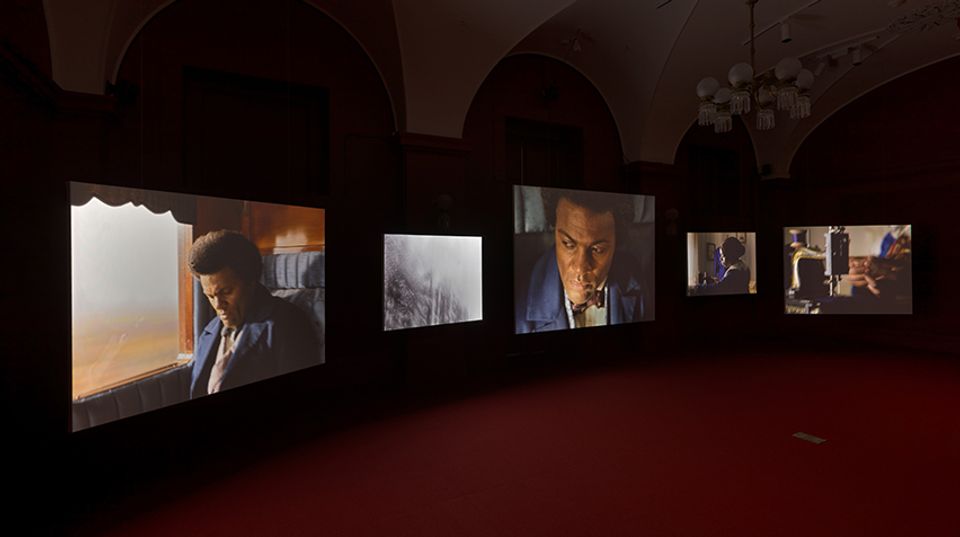
Mike "Bags" Davis. Photo by David Fletcher at Washington's Best
Jazz musician Mike "Bags" Davis will be performing a tribute to composer Kenny Durham at Take 5! on February 21st from 5-7 p.m. in the Kogod Courtyard. Public Programs Coordinator, Laurel Fehrenbach, interviewed him recently to find out more about Durham's impact on the jazz world.
Eye Level: Where did your love and passion for music come from? And how did that influence your style as a musician?
Mike Davis: I think my love and passion for music came from my wonderful uncles, Uncle Harry on cornet and Uncle Fred on trombone. I hope they will be listening to this concert from above and love it. Also, my wonderful mother introduced me to the 32 bar aaba, etc. song form from the 20th century and grew up listening and loving the great singers.
I heard jazz early on in the fifties, Henry Mancini on TV's "Peter Gunn", the Dizzy Gillespie Big Band, Joe Williams with Count Basie, Bill Evans, to name a few, and I loved it all immediately. I think all the listening I did over the years gave me a firm foundation for playing all the various kinds of jazz and I grew up loving the melodies, the long beautiful improvised lines, great and unusual chord changes and beautiful and interesting voicings. I think my style of playing comes out of all of these things.
EL: As a musician, has your first love always been jazz? What other music do you like to listen to?
MD: I do listen to all kinds of music, classical, rock, blues, world music, etc., everything. There are so many avenues these days to listen to new music, the internet, all the interesting offerings on the various NPR programs, which are wonderful. But I think the first thing you hear when you are a kid that really gets your blood flowing is always your first and favorite love. And when I first heard jazz, I didn't know what it was, but I loved it to the infinite power. I find it hard to describe how much it enriches my life, gives me a reason to live and a deep meaning to life. Jazz and playing trumpet are my life.
EL: Why did you feel it was important to pay tribute to Kenny Dorham in your upcoming Take 5! performance?
MD: Kenny Dorham is important. He often gets overlooked and his compositions are some of the best. And his jazz trumpet playing has influenced so many other trumpet players. And I think a lot of people who immediately think of Miles, Dizzy, Louie, Clifford, Freddie, etc., don't realize that Kenny is just as influential.
EL: How has Dorham influenced your music or style of playing?
MD: Kenny has also influenced my style of playing of course, the beautiful long lines, the interesting choice of notes throughout the chord progressions, the nice melodies that emerge in his improvisations, the laid back style and gobs of soul. If a big fat white guy can have any soul at all, I owe it to listening to this wonderful music for years—jazz—and it's great practictioners such as Kenny Dorham.
EL: Who do you think is the most underrated jazz composer that we should be listening to?
MD: Cedar Walton, Bob Brookmeyer, Tadd Dameron, and Clifford Brown. But I also want to mention the great jazz arrangers and the influence they have had on me. It always amazed me how they could take something not very good and turn it into a great piece of music. One of my favorites who should be looked at not only for his arranging but also for his compositions: Oliver Nelson


















